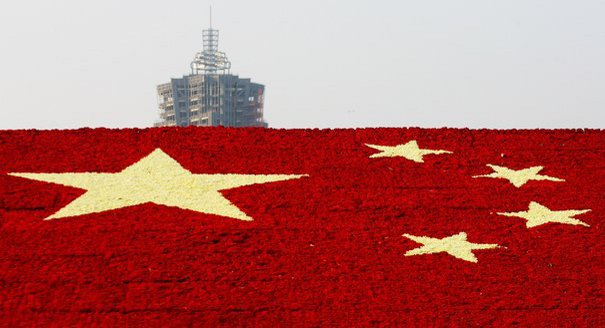When I recently visited an old people’s home in Berlin, the young and dynamic director told me that she had just returned from a week-long trip to China. She had gone not on vacation but on invitation from one of the state agencies responsible for pensioners. “My interlocutors wanted to know all about how we took care of the elderly back in Germany, how it was financed, how the whole system was organized,” said the director.
The issue of taking care of the elderly is not the first thing that springs to mind when academics and security experts sit down to discuss the rise of China. Instead, they usually talk about China’s growing economic power in the world and what it wants to do with its status as an emerging super power.
But last week in Berlin, another side to China was explored during a debate organized by the Friedrich Ebert Foundation, a think tank that is affiliated to Germany’s Social Democratic Party. The main question was whether China’s economic growth could be sustained and the implications for American and European strategy towards the country and the region as a whole. But as soon as the debate began, the panel began discussing the vulnerabilities and immense challenges facing the Chinese communist party.
China, with its enormous population of over a billion people, is going through extraordinary social, economic, and political upheaval. Apart from the huge movements of people from the countryside to the cities and the dislocation that brings, increasing numbers of Chinese are resorting to religion. Some of the panelists said religion, especially Catholicism, but also Buddhism, and Confucianism, was becoming more important for people because it provided an anchor and solace during a time of rapid change. The Chinese authorities are tolerating this rise of religion, regarding it as some kind of safety valve, at least for the moment.
The other trend developing alongside this modernization path is nationalism. The panelists agreed that Chinese nationalism was a glue that held the country together. But the other side to nationalism was the question of identity and how the many different ethnic and religious groups that make up China could articulate that identity without undermining the cohesion and indeed territorial integrity of China.
The audience quizzed the panelists, wanting to know about these issues but also how the United States should react to China investing heavily in Africa, for example, in order to obtain access to vital resources, commodities, and raw materials. If, said a member of the audience, the Chinese leadership does not impose any conditions when it lends to authoritarian or weak democratic countries, then what chance has the United States or Europe in trying to foster transparency or accountability, or even compete with China?
It’s a question that Germany, which along with China ranks as the world’s leading export-driven economy, is concerned about. German industry needs access to rare earth minerals. Since China at present produces over 95 percent of these minerals, Germany and other countries are striking deals with authoritarian countries to open up new channels of supply. Conditionality, in this case, is a luxury for Berlin.
Inevitably, that brought the discussion to human rights. The panelists made two main points about this issue. The first was that the Chinese leadership is preoccupied with stability and keeping the country together. That means being able to sustain economic growth and feed its people.
The second is that the expansion of the internet and social media has weakened the communist party’s monopoly on information. Corruption can no longer be covered up completely. And brave trade union activists are now more willing to defend workers’ rights. That same can be said about the number of environmental movements that have emerged throughout the country.
And all of this is happening against the background of the rapid ageing of the population, a fact that puts terrible urgency behind the leadership’s effort to further economic development.
Because, as the director of the Berlin’s old people’s home could have told the panelists, no system that can safeguard the older generation’s health and dignity will come cheap.






